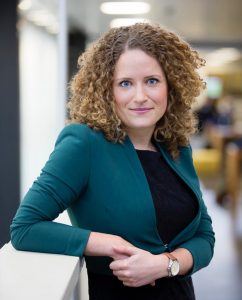About the conference
The InnoRenew CoE International Conference 2021, “Healthy and Sustainable Renovation with Renewable Materials”, will provide a forum to explore renewable materials and their use for creating healthy, sustainable buildings.
The conference is an opportunity to share and discuss emerging science and innovations in renewable materials that can be used in the built environment to enhance human and environmental well-being.
IRIC2021 flyer
IRIC2021 agenda
Book of Abstracts
Important dates
| 12 March 2021, 23:59 CEST | Abstract submission deadline |
| 4 June 2021, 23:59 CEST | Registration deadline |
| 10-11 June 2021 | InnoRenew CoE International Conference 2021 |
Call for abstracts
300-word abstracts for presentations in four thematic areas will be accepted until 12 March 2021:
Health and Well-being
Human factors evaluation and assessment for indoor safety, ergonomics, and comfort across the lifespan
Engineering and Design
Architectural and materials technology for structural integrity, energy efficiency, service life extension, and Life Cycle Thinking
Cultural Heritage
Preservation, restoration, and resilience
Information Technology
Integration for building and materials design, monitoring, and assessment
Please use the abstract template to format your abstract. Submit your abstract for consideration.
Keynote speaker
Lisanne Havinga, MSc. PhD
Assistant Professor Building Performance and Principal Scientist System Integration, Technische Universiteit Eindhoven

Lisanne Havinga is Assistant Professor at the Building Performance group at Eindhoven University of Technology (TU/e) in the Netherlands. She is also Principal Scientist System Integration of the Eindhoven Institute for Renewable Energy Systems, and part of the management team of the institute. She received her Ph.D. in 2019 from TU/e, titled ‘Advancing Post-War Housing: Integrating Heritage Impact, Environmental Impact, Hygrothermal Risk and Costs in Renovation Design Decisions’. Her research focuses on developing modeling and simulation strategies to support decision-making in the energy transition of the built environment. Core topics include the optimization of renovation decisions using parametric exploration of housing variations, user behavior and renovation solutions. A holistic assessment of environmental impact, incorporating life cycle assessment and circularity, is a priority in her work. Lastly, she focuses on setting up interdisciplinary collaborations to develop multi-scale, multi-carrier, dynamic models that support system integration and decision-making across scale levels (technology-building-neighborhood-city-region-country) and sectors (mobility, industry, built environment). The evaluation of innovative technologies and their potential in addressing the key challenges of the energy transition is a priority.
In recent years, she’s contributed to the development of the Climate Agreement of the Netherlands by developing ‘the Renovation Accelerator’, a subsidy program that was recently launched, aiming to accelerate the large-scale renovation of the housing stock. In this context, she’s been an advisor and led research projects for multiple governmental organizations in the Netherlands. In addition to working for governmental organizations, she has built consortia with a wide variety of industry partners. Although she only recently was awarded her PhD thesis, she has already developed a substantial track record of publications and is already building teams of PDEngs, PhD’s and postdocs on the topics 1) circularity/LCA, 2) sustainable renovation, 3) urban energy transition. She has been guest-editor for Renewable and Sustainable Energy Reviews and has authored publications for journals such as Building and Environment, Renewable and Sustainable Energy Reviews, Energy and Buildings and Journal of Cultural Heritage. She is a frequent reviewer for these and more academic journals and has been a member of several scientific committees of international conferences. She was chief editor (together with Emanuele Naboni) of the book publication ‘Regenerative Design in Digital Practice’.
Photo credit: https://www.tue.nl/en/research/researchers/lisanne-havinga/
Venue
The conference will be held online.
Registration
Registration will be open until 4 June 2021, 23:59 CEST.
Payment
Online only: €50 (tax included)
Payment must be made by bank transfer to the InnoRenew CoE bank account, and a copy of the transfer receipt must be attached to your registration form.
ACCOUNT HOLDER: InnoRenew CoE / Livade 6, SI-6310 Izola, Slovenia
BANK: NLB d.d. / Trg republike 2, 1520 Ljubljana, Slovenia
SWIFT CODE: LJBASI2X
IBAN: SI56029220262173147
REFERENCE: 1-2021
Enter “InnoRenew CoE International Conference 2021” in the remark field, and include the following information:
Participant name
Participant surname
Address for issuing/receiving invoice
–Can be either a personal or institutional address
–If the invoice is issued to an institution, include the institution’s tax number
In case of refund, also include the participant bank’s name, address, IBAN and SWIFT code.
Conference sponsors
Would you like to increase your visibility within the interdisciplinary field of renewable materials for healthy built environments? Become an IRIC2021 sponsor.
Contact us at conference@innorenew.eu for more details.
Scientific committee
Michael Burnard, Andreja Kutnar, David DeVallance, Miklós Krész, Anna Sandak, Iztok Šušteršič
Conference organizers
The conference is organized by the InnoRenew CoE and the University of Primorska.
Contact information
Please send questions or comments to conference@innorenew.eu.
Past conferences



